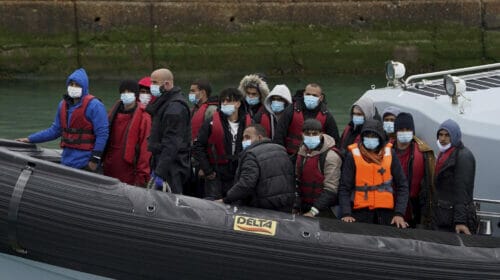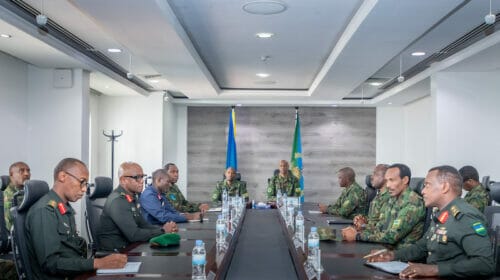End political impasse in Rwanda
‘’Rwanda was permitted to join the Commonwealth in 2009 despite serious concerns being expressed by the Democratic Green Party of Rwanda,” said Frank Habineza, President, Democratic Green Party of Rwanda, speaking from Sweden.
The concern that Rwanda would not be able to meet the Commonwealth principles was supported by the Commonwealth Green Parties and Commonwealth Human Rights Initiative.
These concerns have now been further validated by reports made by the Human Rights Watch, the Commonwealth Human Rights Initiative, Amnesty International and also the Commonwealth Observer Group from the 2010 Presidential election.
“We encouraged the Commonwealth to scrutinise Rwanda’s human rights record and at least wait to see if the August 2010 Presidential elections would be free and fair before allowing Rwanda’s entry,“ said Mr Habineza.
“The Commonwealth did not wait, Rwanda was accepted and now there is not a single registered opposition party or independent media house in the country.”
In 2009, the then Minister for Foreign Affairs, Mr Stephen Smith MP, assured Australian Greens leader Bob Brown that “Australia supported Rwanda’s Commonwealth membership aspirations” because the “Commonwealth will do the country a service by helping to entrench the rule of law and support the Rwandan Government’s efforts towards democracy and economic growth.”
The Australian Foreign Minister, Kevin Rudd MP, must keep the word of his predecessor and ensure that the Commonwealth Ministerial Action Group ensures Rwanda upholds fundamental Commonwealth values and deal with violations.
“The Commonwealth must acknowledge the responsibility that they have assumed for accepting the entry of Rwanda. The international community has a critical role to play in supporting Rwanda to realise its full democratic potential and the Commonwealth owes it to Rwanda to not let the horrors of 1994 to reoccur,’’ said Amy Tyler, Spokesperson, Friends of Rwandan Greens.
‘Rwanda’s democracy is struggling. The Freedom House rates the country as “not free” with a downward trend in political rights and civil liberties. The international community has a critical role to play in Rwanda because, as the Freedom House explains, the trending decline in freedoms coincides “with a growing inability or unwillingness on the part of the world’s democracies to meet the authoritarian challenge”, Amy Tyler said.
Western Australia Greens Senator Scott Ludlam said CHOGM should provide an opportunity to focus on human rights violations within the Commonwealth, not only in Rwanda, it is an opportunity the host country, Australia, cannot throw away.
“For CHOGM to be relevant, for the Commonwealth itself to mean anything, it must have strong, enforceable human rights standards’’.
“The Rwandan Government is not the only one in the Commonwealth that needs to be held to account, and the Australian Greens will continue to push for the Commonwealth to take a decisive stand on human rights,” Senator Ludlam said.
The Commonwealth must heed these concerns at CHOGM in Perth 2011 and consider how to ensure Rwanda is not another Zimbabwe and is able to meet their commitment to the Commonwealth principles enshrined in the Harare Declaration.
Friends of Rwandan Greens, call upon the Commonwealth Heads of Government Meeting and the Commonwealth Secretariat to:
- Speak out openly against human rights abuses, political oppression and media censorship in Rwanda;
- Use bi-lateral and international Aid to enforce democracy and rule of law in Rwanda;
- Ensure the release of all political prisoners and jailed journalists; and
- Resolve the mystery of the murder of the Green Party Vice President, Andre Kagwa Rwisereka.
For more information, please contact:
Amy Tyler, Spokesperson for Friends of the Rwandan Greens (FoRG)
Email: 22tyler@gmail.com


